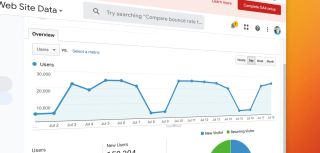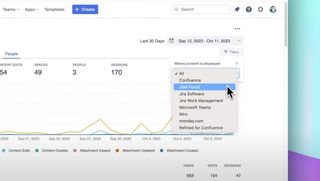Universal Analytics still works?
Wait, didn't Google say that Universal Analytics would stop collecting data on July 1, 2023? I took a look at one of my Universal Analytics properties and was surprised to see that it's still collecting data. What gives?
It turns out that Google are shutting down Universal Analytics in stages.
From Analytics Help – Google Analytics 4 has replaced Universal Analytics updated July 1, 2023:
Starting July 1, 2023: Universal Analytics properties will stop processing hits, including standard properties in accounts that also contain 360 properties. Some properties will continue to process data for a short period after this as we stage the shutdown of Universal Analytics. You'll be able to access your previously processed data in your Universal Analytics property until July 1, 2024.
So, just because it still works for me, that doesn't mean:
- It will still work for others
- You can depend on it still working for very much longer
So what now?
Really, if you haven't already migrated to Google Analytics 4, you are behind the game. Catch up quick.
The legacy of Universal Analytics
Universal Analytics has been the go-to analytics solution for over a decade. Its powerful features allowed businesses to track visitor data, understand user engagement, and optimize their online presence effectively. With UA, marketers could measure the success of their marketing campaigns, analyze conversion funnels, and segment user data for more personalized experiences.
Why the transition to GA4 is essential
While UA has served businesses well, the industry is evolving, and Google recognized the need for a more advanced analytics platform. GA4, the successor to UA, offers a host of new features and capabilities that empower businesses to gain deeper insights into their data and adapt to changing user behaviors.
1. Cross-platform and cross-device tracking
GA4 provides a more comprehensive view of user interactions by seamlessly tracking user behavior across various platforms and devices, including mobile apps, websites, and other digital assets.
2. Enhanced user insights
With a greater emphasis on events-based tracking, GA4 enables marketers to understand user engagement more holistically. This helps identify key touchpoints in the user journey, thereby optimizing marketing efforts for better conversions.
3. Machine learning-driven insights
GA4 incorporates advanced machine learning capabilities that deliver actionable insights, predictive metrics, and automated audience segmentation. These features allow marketers to make data-driven decisions and maximize the effectiveness of their campaigns.
4. Improved privacy and compliance
GA4 is designed to comply with evolving privacy regulations, providing businesses with better control over data collection and ensuring a more transparent user experience.
Navigating the migration process
Migrating from UA to GA4 involves a well-thought-out process to ensure a seamless transition without any data loss or tracking disruptions. Google has provided detailed documentation and resources to guide users through the migration process. It is recommended to follow these guidelines closely or seek assistance from experienced analytics professionals to avoid any potential pitfalls.
The urgency of migrating now
Although UA is still functional (just), the dealine has already passed for miograting to GA4. Do not expect UA to remain functional for very long. It's therefore essential for businesses to prioritize migrating to GA4 ASAP. Delaying the transition may lead to data loss and missed opportunities for valuable insights.
Moreover, by adopting GA4 now, businesses can take advantage of the platform's unique features and gain a competitive edge. With the new event-driven model, machine learning capabilities, and cross-device tracking, marketers can uncover actionable insights that were previously inaccessible.
Google Analytics in Confluence & Google Analytics in Jira already support GA4
If you use either of our products Google Analytics in Confluence or Google Analytics in Jira, they already support the GA4, so if you haven't already, do the migration and configure the apps to support GA4.
Here's the documentation for each of the apps
- Google Analytics in Confluence: GA4 – An update guide
- Google Analytics in JIRA: GA4 – An update guide
Conclusion
Universal Analytics (UA) has been a cornerstone of web analytics for over a decade, but its time is drawing to a close. With the scheduled turn-off now passed, businesses and marketers must take swift action to migrate to Google Analytics 4 (GA4). GA4's enhanced features, cross-platform tracking, and machine learning-driven insights offer invaluable benefits in today's digital landscape.
The clock is ticking, and the migration process may require careful planning and execution. Hence, website owners and marketers are encouraged to make the move today. By embracing GA4, businesses can unlock new levels of understanding about their audiences, optimize their marketing efforts, and future-proof their analytics capabilities.






